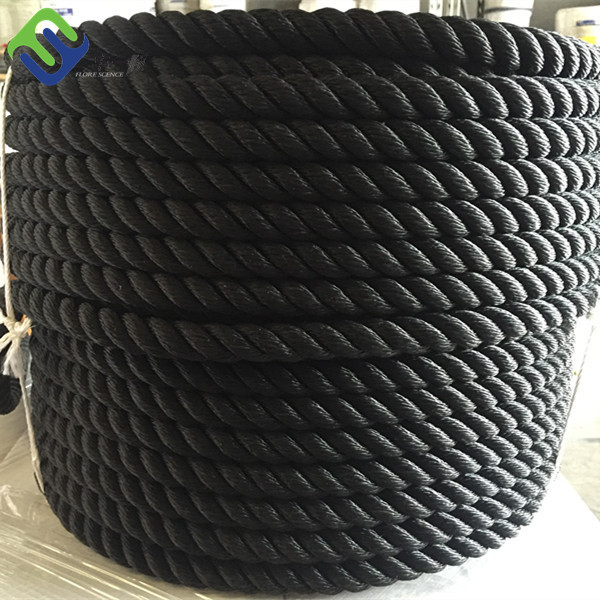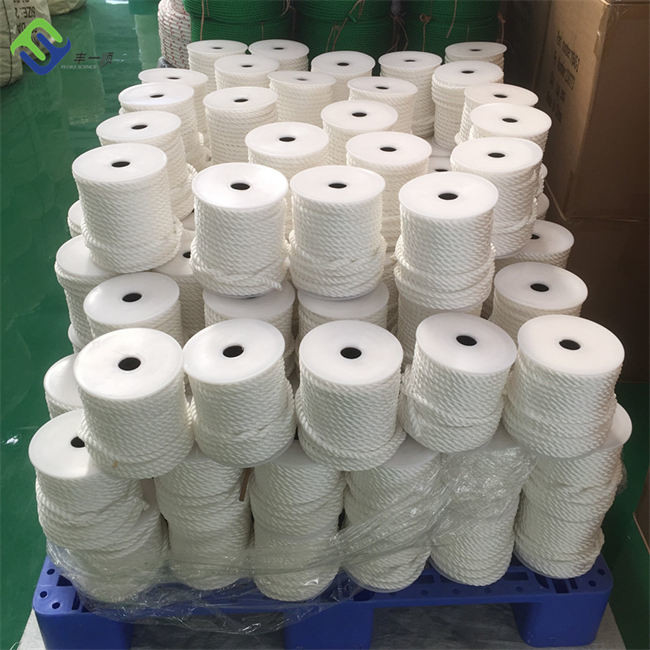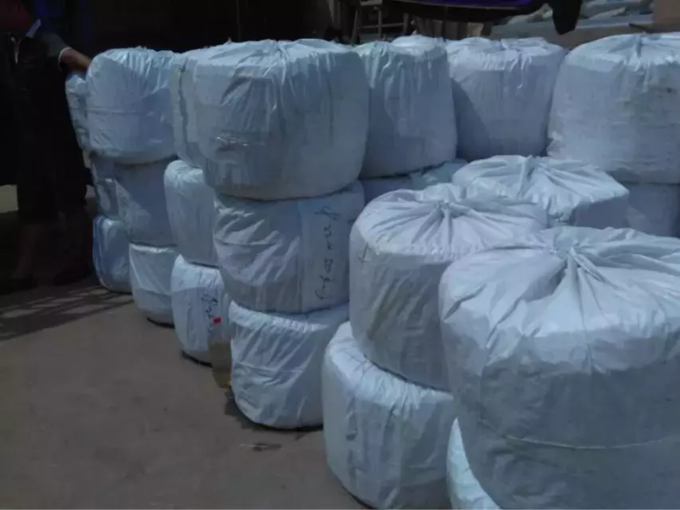High Breaking Load 100% Polyamide Fiber 3 Strand Twisted Nylon Rope For Marine Using
High Breaking Load 100% Polyamide Fiber 3 Strand Twisted Nylon Rope For Marine Using
Advantage of Nylon Rope
It has a good UV resistance and has good resistance to ultraviolet deterioration from sunlight, mildew, rot, and chemical exposure. Nylon can be used in industries exposed to chemicals and organic solvents and is resistant to rot, mildew, and moisture.
| Product name | 100% Polyamide Fiber 3 Strand Twisted Nylon Rope For Marine Using |
| Color | White, yellow, blue, black, etc. |
| Material | Nylon fiber
|
| Size | 10mm-100mm
|
| Structure | 3 Strand twisted
|
| Packing | Coil or Reel |
| Certificate
|
CCS/ABS |
| MOQ | 1000kg
|
| Delivery time
|
7-15 days |
Photos for Nylon Rope



Learn the difference between nylon and polyester rope:
Differences
Nylon and polyester are both strong, synthetic materials, and are suitable for a number of different jobs. Here’s how they differ:
Nylon
Strengths:
Nylon is more flexible. Unlike polyester, nylon rope has an impressive stretch resistance, which may be desireable if you need that extra “give.”
This means that you can stretch out a nylon rope as needed, and the rope will still return to its normal size when you are done with the job. For example, nylon’s flexibility is particularly handy for projects like an anchor line where you want that bit of “give.”
Nylon is shock resistant. While nylon and polyester are both strong synthetic ropes, nylon is the winner when it comes to shock jobs.
Because of its flexibility, nylon is able to maintain its strength despite withstanding high levels of stress.
Nylon can be dyed. Can’t find the exact color of rope that you’re looking for? If you use our nylon rope, you can dye it to match any color you choose!
This advantage is specific to our nylon rope polyester rope and standard nylons cannot be dyed.
Weaknesses:
Nylon is not the best for wet environments. Although nylon is normally a very strong rope, its strength becomes compromised when wet, causing it to sag.
Nylon is not suitable for extremely high temperatures. While most of your jobs are probably not this extreme, it is important to note that nylon rope will begin to degrade at 250℉. (Polyester, on the other hand, can withstand heat up to 275℉.)
Polyester
Strengths:
Polyester retains its strength when wet. If you’re looking for a rope to use in marine applications, polyester is the way to go.
Unlike nylon, polyester will retain its normal level of strength, even when wet.
Polyester is low-stretch. While nylon’s flexibility does bring it certain advantages, polyester offers a set of different perks for its low-stretch nature.
Because it won’t stretch out while in use, polyester is ideal for use for awnings, flagpoles, bundle ties, and general, firm tie-down requirements.
Polyester is the best-all-around synthetic rope. For a no-brainer, fail-safe, strong and efficient synthetic rope, polyester is almost always the best choice.
While nylon is indeed more flexible (making it stretch and shock resistant), polyester doesn’t share any of nylon’s potential weaknesses.
Packing Method


Application

Contact us
If you are interested in our products, please ask us any time, we are 24 hours on-line!!!
High Breaking Load 100% Polyamide Fiber 3 Strand Twisted Nylon Rope For Marine Using Related Video: